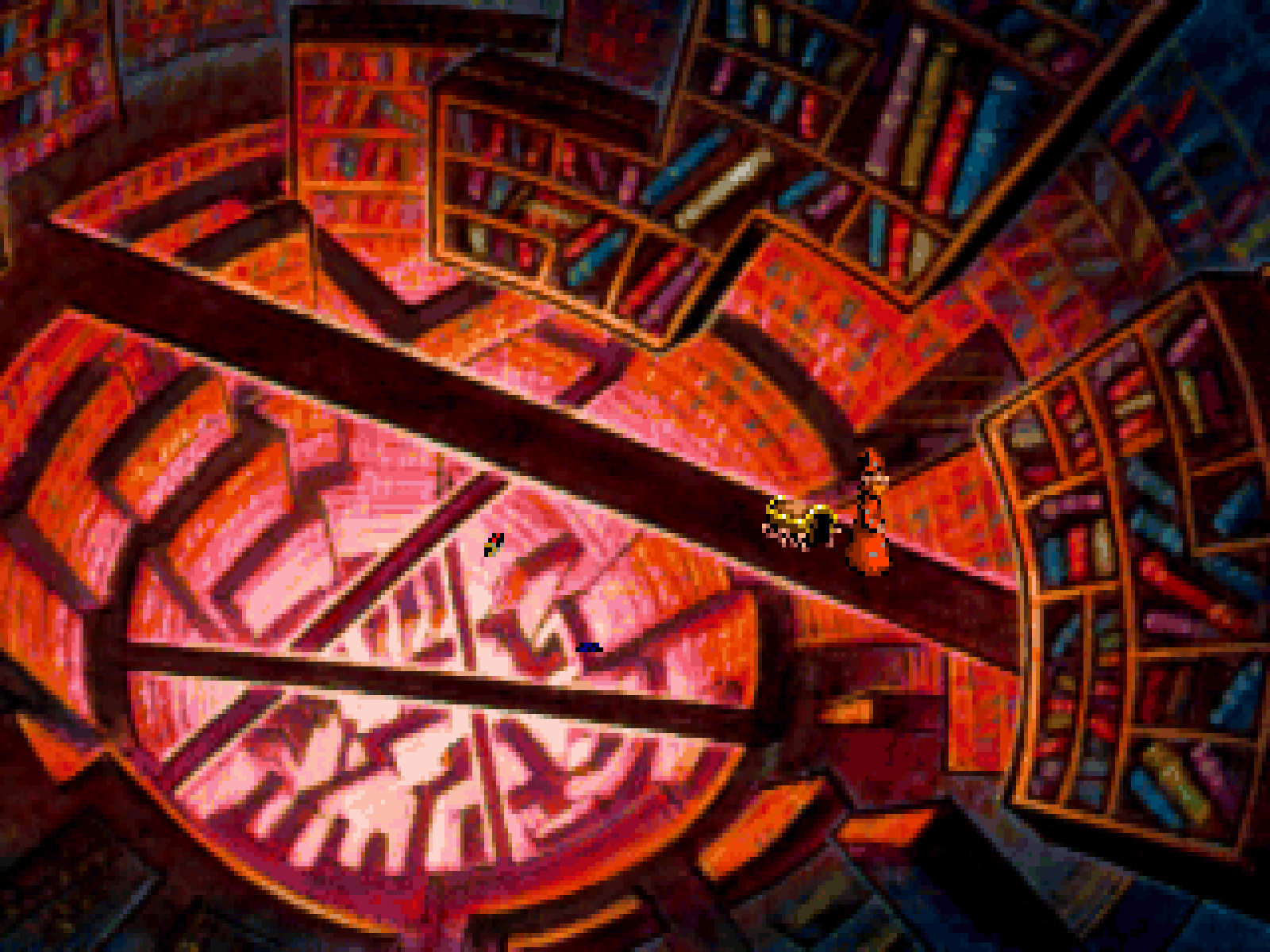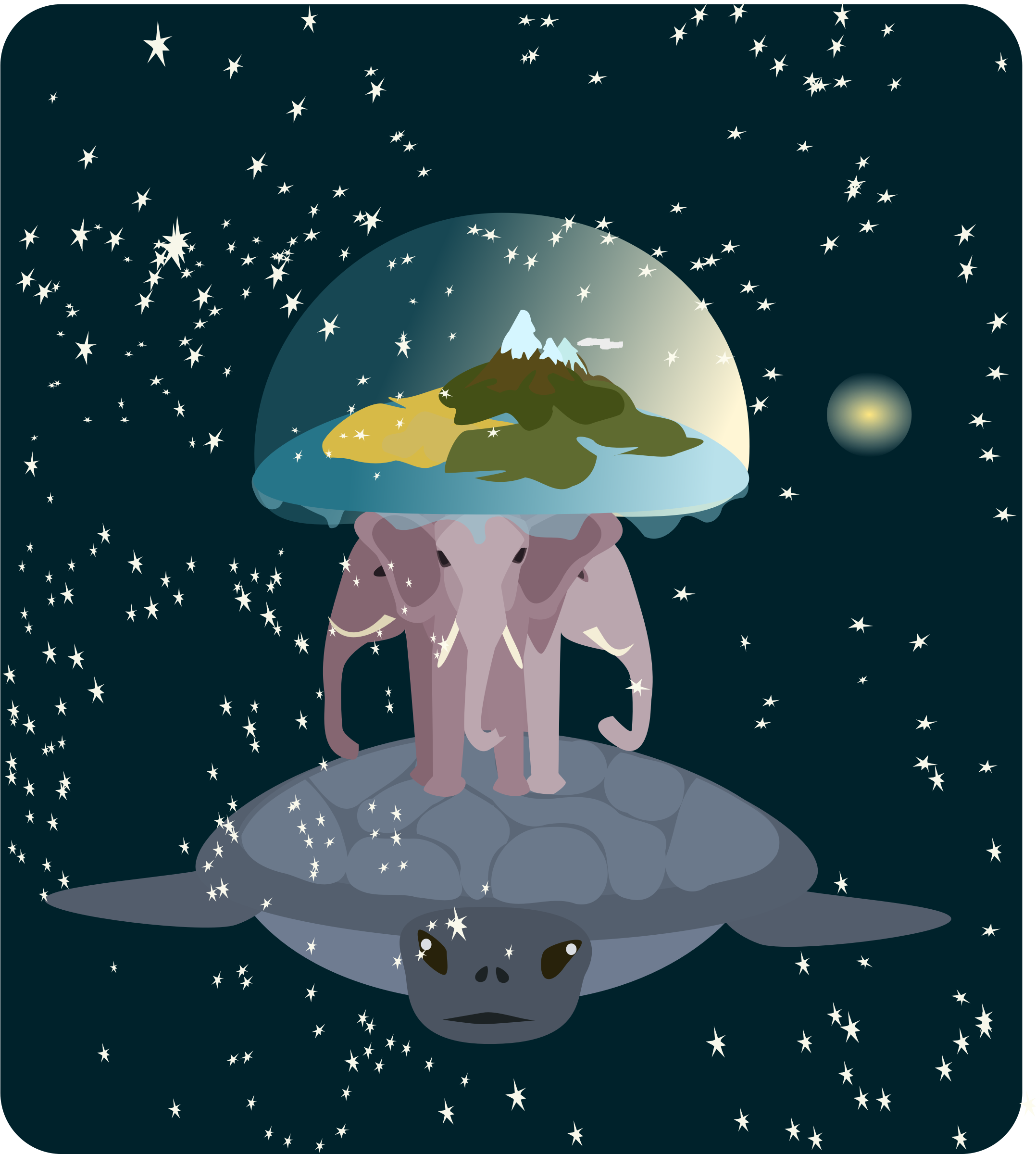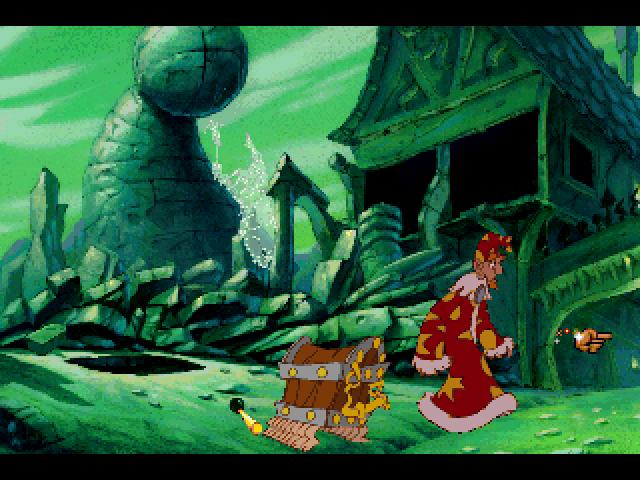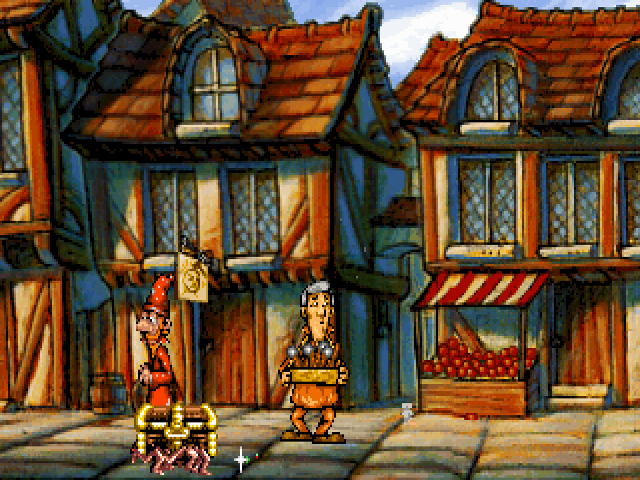

This is shown in Going Postal, when the goddess Anoia suddenly gains a large following after she appears to have granted Moist von Lipwig a large sum of money. Most inhabitants seem to believe in all the gods, and to worship whichever seems likeliest to help them. The main religion on the Disc appears to be polytheism. Should they acquire followers, they can evolve into larger gods and gain the ability to manifest themselves and perform miracles. The Disc also has an almost infinite number of small gods, typically spiritual beings with very little power and no followers. Other gods are more local, such as the enormous pantheon of Djelibeybi Herne the Hunted and Hoki the Jokester of the Ramtops and the numerous gods of Skund Forest. They include current king of the gods Blind Io, crocodile-headed Offler, Seven-handed Sek, Fate, The Lady, and Errata, goddess of misunderstandings. The major gods live in an Olympus-like mountain-top kingdom in the centre of the Discworld called Dunmanifestin. If people should cease believing in a particular god (say, if the religion becomes more important than faith) the god begins to fade and, eventually, will "die", becoming little more than a faded wispy echo. This is a philosophy echoing the real-world politics of the power of religion and is most detailed in the novel Small Gods. Gods on the Discworld exist as long as people believe in them and their power grows as their followers increase. Most gods remain small and unknown, but a very few come to the notice of humanity, whose belief then shapes and strengthens them until they gather enough power to join the Disc's vast, unwieldy pantheon. Gods exist in potentia in numbers uncountable, but the moment an event of any note occurs - say, two snails happening to cross at a single point - a god becomes tied to it and begins to manifest in the physical world. Gods are everywhere on the Discworld, a crucial element of the world's peculiar ecology that gives power to belief and demands resolution to any and all narratives. Because reality on the Disc is so fragile and malleable, belief has a tendency to take on a life of its own, and Gods are far more obvious to the people of the Disc than they appear to us.

A post-canon(s) interlude, featuring a little meta, a little metaphysics, and a little omnipresence.The Discworld, being a flat disc supported on the backs of four elephants on top of a giant flying turtle, exists in a region of the universe where reality is somewhat less consistent than it appears in our own, more mundane corner of existence.

In which Brutha and Vorbis go on a journey, and Om makes plans.

For vacantpanic Fandoms: Huge, Discworld - Terry Pratchett


 0 kommentar(er)
0 kommentar(er)
